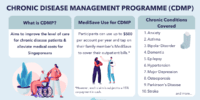Orthopedic Tourism: Accessing Quality Joint Replacement Abroad

If you’re struggling with joint pain and considering a joint replacement surgery, you might be surprised to learn that traveling abroad for medical care is becoming increasingly popular.
Many people are turning to orthopedic tourism as a way to access high-quality joint replacement surgeries at more affordable prices.
Orthopedic tourism involves traveling to another country for medical treatment, typically to receive joint replacement surgery.
The idea is to take advantage of lower costs or to access treatments that may not be available or affordable in your home country.
While the concept of traveling for medical care may seem daunting, it can be a worthwhile option for those who are willing to do their research and take the necessary precautions.
In this article, we’ll explore the pros and cons of orthopedic tourism and provide tips for finding reputable medical facilities, choosing a destination, and preparing for your trip.
Key Takeaways
- Research reputable medical facilities and choose the right destination for joint replacement surgery abroad.
- Preparation and logistics are crucial for a smooth and stress-free experience, including understanding local customs and healthcare systems.
- Follow post-operative instructions from the surgeon, including physical therapy exercises, wearing a brace or using crutches, and avoiding certain activities.
- Water, healthy eating, and staying active can aid in recovery, and follow-up appointments with the doctor are important to monitor healing and function of the new joint.
Understanding Orthopedic Tourism: What Is It and How Does It Work?
Looking to save money on joint replacement surgery? Let’s dive into the world of orthopedic tourism and find out what it’s all about!
Orthopedic tourism is the practice of traveling abroad to receive joint replacement surgery at a lower cost than what you would pay in your home country. This trend has become increasingly popular in recent years, as more and more people are seeking affordable healthcare options.
So how does it work? Essentially, you research and choose a reputable hospital or clinic in a foreign country that specializes in joint replacement surgery. You’ll communicate with the medical staff there to discuss your medical history and treatment options.
Once you’ve made all the necessary arrangements, you’ll travel to the foreign country to receive your surgery and follow-up care. The cost savings can be significant – many people report saving thousands of dollars on their joint replacement surgery by choosing to go abroad.
The Pros and Cons of Traveling Abroad for Joint Replacement Surgery
Deciding to undergo surgery in a foreign country can be a risky yet tempting option for those seeking a more affordable solution to their joint problems. While the cost savings can be significant, there are also risks involved in traveling abroad for medical procedures. Here are the pros and cons you should consider before making a decision:
| Pros | Cons |
|---|---|
| Lower cost of surgery | Limited access to aftercare |
| Shorter wait times for surgery | Language and cultural barriers |
| Opportunity for medical tourism | Lack of legal recourse if problems arise |
| Access to high-quality facilities | Increased risk of complications |
| Chance to combine surgery with vacation | Difficulty in follow-up care |
It’s important to weigh these factors carefully and make an informed decision. One of the biggest advantages of orthopedic tourism is the lower cost of surgery, which can be a fraction of what you would pay in your home country. Additionally, you may be able to get your surgery done more quickly, without having to wait months or even years for a slot to open up in your local hospital. However, you also need to consider the potential downsides, such as language barriers, lack of access to aftercare, and increased risk of complications. Be sure to do your research and choose a reputable facility with a proven track record of success before making a decision.
Researching Your Options: How to Find Reputable Medical Facilities
When you’re trying to find a trustworthy medical facility for your surgery, it’s important to do thorough research and ask for recommendations from friends or family who have had similar procedures.
You can start by looking up hospitals or clinics online and checking their accreditation and certifications. Make sure they have a good reputation and positive reviews from previous patients, as well as qualified and experienced medical staff.
It’s also important to consider the location of the facility and the overall cost of the procedure, including travel expenses and post-operative care.
Some countries may offer lower prices for joint replacement surgery, but it’s important to ensure that the quality of care is not compromised.
You may also want to look into any language barriers or cultural differences that could affect your experience.
By doing your research and taking the time to find a reputable medical facility, you can access quality joint replacement surgery abroad.
Choosing the Right Destination: Factors to Consider
To make the best decision for your medical travel, consider factors such as the location, cost, language barriers, and cultural differences.
When choosing a destination for your orthopedic surgery, it’s important to select a location that has the necessary medical facilities and experienced healthcare professionals. Research the country’s healthcare system, as well as the hospital or clinic where you’ll receive your treatment.
Cost is another important factor to consider. While some countries may offer lower prices for medical procedures, it’s important to ensure that the quality of care isn’t compromised.
Additionally, language barriers and cultural differences can pose challenges during your medical travel. Consider destinations where you’re comfortable communicating in the local language or where there are translators available.
Lastly, take into account the cultural differences that may impact your recovery and overall experience. Choose a destination where you feel comfortable and confident in receiving your joint replacement surgery.
Preparing for Your Trip: Planning and Logistics
Planning your medical trip can be overwhelming, but with proper preparation and logistics, you can ensure a smooth and stress-free experience. Start by making a checklist of everything you need to do before your trip. This may include arranging for transportation, booking accommodations, obtaining necessary travel documents, and scheduling appointments with your chosen healthcare provider.
To help you stay organized, use a table like the one below to keep track of important details. Be sure to research your destination thoroughly to understand the local customs and healthcare system. It may also be helpful to learn a few basic phrases in the local language to communicate with healthcare professionals and locals. By taking the time to plan and prepare for your trip, you can focus on your health and recovery without any unnecessary stress or complications.
| Task | Due Date | Completed | |||
|---|---|---|---|---|---|
| Book flights | |||||
| Arrange transportation to and from airport | |||||
| Book accommodations | |||||
| Obtain necessary travel documents (passport, visa, etc.) | |||||
| Research healthcare providers and facilities | |||||
| Schedule appointments with chosen healthcare provider | |||||
| Learn basic phrases in local language | Familiarize yourself with local customs and cultural norms. |
Meeting with Your Surgeon: What to Expect
Meeting with your surgeon can be nerve-wracking, but don’t worry – they’ll guide you through the process and answer any questions you may have.
Before the actual surgery, your surgeon will conduct a thorough physical examination to evaluate your overall health and identify any potential risks. They’ll also review your medical history, including any past surgeries, medications, and allergies.
During the consultation, your surgeon will explain the procedure in detail, including the type of joint replacement, the expected results, and any potential risks or complications. They’ll also discuss the anesthesia options and the expected recovery time.
It’s important to ask any questions you may have and be honest about your lifestyle and expectations, as this will help your surgeon tailor the procedure to your specific needs. Remember, your surgeon’s goal is to provide you with the best possible outcome and improve your quality of life.
Recovering Abroad: Tips for a Smooth Experience
Recovery can be an exciting adventure, especially when you’re in a foreign country. However, it can also be challenging if you’re not prepared. Here are some tips to help you have a smooth recovery abroad:
- Follow your surgeon’s instructions: Your surgeon will give you specific instructions on how to care for your new joint. Follow them carefully to ensure a successful recovery.
- Stay active: While it’s important to rest, it’s also important to stay active. Walking and gentle exercises can help improve your range of motion and prevent blood clots.
- Eat healthy: Eating a balanced diet can help speed up your recovery and boost your immune system. Try to eat foods that are rich in protein, vitamins, and minerals.
- Stay hydrated: Drinking plenty of water can help prevent dehydration and constipation, which are common after surgery.
- Stay positive: Recovery can be a challenging time, but staying positive can help you get through it. Surround yourself with supportive people and focus on the progress you’re making.
Remember, recovery is a process, and it’s important to take things one day at a time. With these tips, you can have a successful recovery abroad and enjoy all the exciting adventures that come with it.
Returning Home: Follow-Up Care and Monitoring
After you return home from your surgery overseas, it’s important to schedule follow-up appointments with your doctor to ensure proper care and monitoring of your new joint.
Your doctor will likely want to see you within a week or two of your return to check on your progress and make sure there are no complications. They may also order imaging tests to check how well your new joint is healing and functioning.
In addition to seeing your doctor regularly, it’s important to follow any post-operative instructions they give you, such as taking medication, doing physical therapy exercises, and avoiding certain activities.
You may also need to wear a brace or use crutches for a period of time to aid in your recovery. By following these instructions and attending your follow-up appointments, you can ensure the best possible outcome for your joint replacement surgery.
Frequently Asked Questions
What kind of medical insurance covers orthopedic tourism, and what are the costs associated?
You’ll need to check with your medical insurance provider to see if orthopedic tourism is covered. Costs will vary depending on the destination, procedure, and insurance coverage. Be sure to factor in travel and accommodation expenses.
Are there any age restrictions for joint replacement surgery abroad?
You should check with the specific medical facility abroad for their age restrictions on joint replacement surgery. Some may have a minimum or maximum age requirement, but it varies by location.
What is the success rate of joint replacement surgeries performed abroad?
You may be pleased to know that the success rates of joint replacement surgeries performed abroad are comparable to those in your home country. However, it’s important to thoroughly research the facilities and doctors before making any decisions.
What happens if there are complications during or after the surgery while abroad?
If there are complications during or after your joint replacement surgery abroad, you may face language barriers, limited access to follow-up care, and potential legal issues. It’s important to carefully consider the risks before pursuing surgery abroad.
Are there any legal implications or risks associated with undergoing joint replacement surgery abroad?
If you opt for joint replacement abroad, you may face legal risks and complications. Laws and regulations may differ, and it may be difficult to hold foreign providers accountable. Do your research and consult with legal experts before making a decision.
Conclusion
Congratulations! You’ve completed your joint replacement surgery abroad and are now on your way to a successful recovery.
With careful planning and research, you were able to access high-quality medical care at a fraction of the cost. While there may have been some challenges along the way, such as adjusting to a new environment and language barriers, the benefits of orthopedic tourism cannot be denied.
Not only did you save money, but you also received personalized care from a skilled surgeon and had the opportunity to explore a new destination.
As you continue your recovery at home, be sure to follow up with your doctor and keep up with your physical therapy. Remember, the key to a successful joint replacement is proper care and maintenance, so don’t hesitate to reach out for support if needed.









